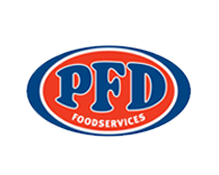Data Disretization
Data discretization:Data discretization is the process of converting continuous data into discrete data. Discrete data can be represented in a finite set of values, making it easier to store and process. Data discretization is often used when working with large datasets because it can reduce the amount of storage space required and improve computational efficiency.
Data discretization is an important process when it comes to data analysis. It involves the transformation of numerical values into categorical ones, allowing for easier evaluation and manipulation. By doing so, complex datasets can be simplified and structured in a way that makes them more meaningful to users. This article will explore the concept of data discretization, its purpose and application within various domains.
Discretization entails breaking down continuous attributes into multiple discrete intervals or buckets – each with their own value range. The goal is to reduce the number of distinct values within a feature set while retaining as much information as possible about the original dataset. This method has been widely adopted by practitioners working on projects involving machine learning algorithms such as clustering, decision trees, neural networks and text mining.
The benefits of data discretization cannot be understated, making it an indispensable tool for anyone looking to maximise efficiency and accuracy in their workflows. With this approach, analysts can make better decisions faster by avoiding overwhelming amounts of data points or variables. Furthermore, they are able to identify patterns between different features which could otherwise go unnoticed with traditional methods of analysis.
What Is Data Discretization?
Data discretization is a data transformation process that enables data mining, as well as data reduction. It involves the division of continuous numeric variables into smaller bins or intervals by defining bin sizes. Bin widths are determined based on the distribution of values and other criteria such as principal component analysis (PCA) and decision trees. To create discrete datasets, one needs to transform and load them with appropriate commands.
Data discretization reduces the complexity in large datasets. For example, it can reduce noise from outliers when used for regression models or clustering algorithms. It also allows for better visualisation of complex distributions which would otherwise be difficult to interpret due to a large number of observations. In addition, it makes it easier to compare results between different sets of data since all intervals are equal-sized and have the same range of values. This helps practitioners make more informed decisions about their data and how best to utilise them for their business objectives.
What Is The Purpose Of Discretization?
Discretization is the process of transforming continuous data into discrete classes in order to reduce its dimensionality. It plays an important role in many data mining and machine learning tasks, such as decision tree induction, rule-based classification systems, interactive or batch data transformation, and data warehousing. Discretization techniques can be broadly classified according to two criteria:
- Algorithmic approach;
- Domain knowledge based approaches.
Algorithmic approaches are those that use no specific domain knowledge but usually rely on statistical characteristics of a dataset. Examples include discretizing by frequency distribution, entropy minimisation (Minimum Description Length Principle), equal width partitioning and clustering algorithms. Domain knowledge based approaches incorporate prior information about the application domain from experts to determine appropriate splitting points for values in numerical attributes. Examples include concept hierarchy discretization and automatic relevance determination methods. The main disadvantage with these methods is that they require considerable effort by experts to define meaningful intervals for each attribute.
The purpose of discretization is to simplify complex relationships between variables so that it becomes easier to understand them better and make predictions or decisions more accurately. By reducing the dimensionality of datasets through this process, we can make data mining algorithms run faster while still achieving good accuracy results since fewer features need to be processed. Therefore, understanding how different types of discretization algorithms work and when they should be applied is essential for successful implementation of any kind of data analysis task involving large amounts of raw information.
What Are Discretization Methods?
Discretization is a process in which continuous values are transformed into discrete or categorical variables. Its purpose is to reduce the complexity of data and make it easier for machine learning algorithms to work with, allowing them to better understand the dataset. Discretization methods vary depending on the type of data being processed and can be used in various stages of the data mining process.
Classification models such as decision trees often require discretized inputs during training, while Bayesian discretization method divides numeric attributes into bins based on their probability distributions given class labels. Complex discretizations involve grouping together multiple features and using an optimal discretization algorithm to determine intervals that best characterise subsets within a domain. The resulting groups are then assigned labels that can be used by classification algorithms towards data science tasks.
Discrete values have advantages over continuous values when it comes to computational efficiency, since they use less memory and can be evaluated faster by machines. Additionally, discretizing input values helps reduce noise in datasets, making it easier for machine learning algorithms to identify meaningful patterns from large amounts of data. Furthermore, applying discretization techniques also improves predictive accuracy by providing clearer boundaries between categories within a feature set.
What Is Discretization In Data Transformation?
Discretization is a data transformation step in data science, which involves transforming continuous values into discrete or non-continuous ones. It helps to reduce the dimensionality of data and can be used as part of a machine learning model for test cases. Discretizing methods vary depending on the type of continuous data being transformed; some of the most popular are based on correlation coefficients or Freedman-Diaconis Rules.
In terms of its application, discretizing techniques allow us to convert continuous variables into discreet categories by scoring them according to different intervals (e.g., low, medium, high). This allows us to better capture patterns between the independent variables and target variable within our dataset and thus improve prediction accuracy when applied with machine learned models. Moreover, it facilitates easier interpretation of results since we don’t need to deal with very large numbers that may not make much sense without proper context.
Discretization also reduces computational complexity significantly since it eliminates redundant information from datasets and makes them less complex for models like neural networks to learn from efficiently. In addition, this process enables us to use simpler algorithms such as decision trees which require fewer resources than more sophisticated approaches while still providing accurate predictions due to their ability to recognize underlying patterns in numerical data automatically.
What Are The Advantages And Disadvantages Of Discretization?
Discretization is a data transformation process used to convert continuous numerical values into discrete or categorical values. This technique can be applied to both univariate and multivariate data sets, allowing for more effective data integration and analysis. Discretization commonly involves the use of discretization codes that provide an approximate representation of probability distributions.
This method offers several advantages when compared with other analytical processes. Firstly, it provides non-trivial discretization, meaning that even complex steady state density distribution can be accurately represented in terms of its excess returns distribution. Secondly, this approach allows for approximations of probability distributions such as the multinomial or dirichlet distributions which would otherwise require unrealistic amounts of computation time when using arbitrary shock distributions. Thirdly, it eliminates the need for relying on complicated mathematical models to represent continuous distributions like normal curves or beta variation series. Lastly, it reduces noise and randomness in large datasets by giving a better view at trends within them.
However, there are also some drawbacks associated with this technique that should not be overlooked. Due to the simplification involved in converting continuous variables into discrete ones, important information may be lost from the dataset which could have implications further down the line during analysis and interpretation stages. Additionally, outliers may not always be properly captured depending on how broad or narrow binning criteria has been set up before discretizing values - resulting in incorrect results being produced if these anomalies remain undetected until later stages of processing. Finally, since only limited numbers of categories are typically employed when transforming values (e.g., low/medium/high) any subtle nuances between different levels tend to become less visible as they all get grouped together under one category heading rather than being treated separately throughout the entire process.
Conclusion
Data discretization is an important process in data transformation. It involves grouping together raw data points into categories, or bins, which are defined by a range of values. This can be done to simplify complex datasets and make them more manageable for analysis. The purpose of this process is to reduce the amount of information that must be processed while still retaining useful insights from the data.
Discretization methods vary depending on the type of dataset being used and what kind of insight needs to be gained from it. Common techniques include binning, clustering, entropy-based methods, decision tree induction, fuzzy logic approaches and association rules mining. Each method has its own advantages and disadvantages; for example, binning may result in lossy compression whereas some other methods may produce skewed results due to outlier data points.
Overall, discretization can provide great benefits when applied appropriately as part of the data preprocessing stage. By reducing complexity and making the dataset easier to analyse without losing any significant information content, discretization helps extract meaningful insights from large datasets with minimal effort. Therefore, understanding different discretization techniques is essential for effectively utilising them during data processing tasks.
PREVIOUS NARROW AI GLOSSARY TERM
NEXT NARROW AI GLOSSARY TERM
Data Discretization Definition
Exact match keyword: Data Discretization N-Gram Classification: Data binning, data quantization, data discretization algorithms Substring Matches: Data, Discretization Long-tail variations: "data binning techniques", "data quantization algorithms" Category: Science and Technology Search Intent: Research, Solutions, Purchase Keyword Associations: Machine Learning, Data Analysis, Feature Engineering Semantic Relevance: Machine Learning, Algorithms, Clustering Parent Category: Computer Science Subcategories: Algorithms, Clustering, Machine Learning Synonyms: Binning, Quantization Similar Searches: Machine Learning Algorithms , Data Analysis Techniques , Feature Engineering Techniques Geographic Relevance: Global Audience Demographics : Students , Researchers , Professionals Brand Mentions : IBM , Microsoft , Oracle Industry-specific data : Error Rates , Efficiency Measures Commonly used modifiers : "Algorithm", "Techniques" Topically Relevant Entities : Machine Learning Algorithms , Data Analysis Techniques , Feature Engineering Techniques , Data Binning Methods , Data Quantization Approaches."Larry will be our digital expert that will enable our sales team and add that technological advantage that our competitors don't have."
Kerry Smith
CEO, PFD Foods
$1.6 billion in revenue 
"Lion is one of Australasia’s largest food and beverage companies, supplying various alcohol products to wholesalers and retailers, and running multiple and frequent trade promotions throughout the year. The creation of promotional plans is a complicated task that requires considerable expertise and effort, and is an area where improved decision-making has the potential to positively impact the sales growth of various Lion products and product categories. Given Complexica’s world-class prediction and optimisation capabilities, award-winning software applications, and significant customer base in the food and alcohol industry, we have selected Complexica as our vendor of choice for trade promotion optimisation."
Mark Powell
National Sales Director, Lion
"At Liquor Barons we have an entrepreneurial mindset and are proud of being proactive rather than reactive in our approach to delivering the best possible customer service, which includes our premier liquor loyalty program and consumer-driven marketing. Given Complexica’s expertise in the Liquor industry, and significant customer base on both the retail and supplier side, we chose Complexica's Promotional Campaign Manager for digitalizing our spreadsheet-based approach for promotion planning, range management, and supplier portal access, which in turn will lift the sophistication of our key marketing processes."
Richard Verney
Marketing Manager
Liquor Barons

"Dulux is a leading marketer and manufacturer of some of Australia’s most recognised paint brands. The Dulux Retail sales team manage a diverse portfolio of products and the execution of our sales and marketing activity within both large, medium and small format home improvement retail stores. We consistently challenge ourselves to innovate and grow and to create greater value for our customers and the end consumer. Given the rise and application of Artificial Intelligence in recent times, we have partnered with Complexica to help us identify the right insight at the right time to improve our focus, decision making, execution, and value creation."
Jay Bedford
National Retail Sales Manager
Dulux

"Following a successful proof-of-concept earlier this year, we have selected Complexica as our vendor of choice for standardizing and optimising our promotional planning activities. Complexica’s Promotional Campaign Manager will provide us with a cloud-based platform for automating and optimising promotional planning for more than 2,700 stores, leading to improved decision-making, promotional effectiveness, and financial outcomes for our retail stores."
Rod Pritchard
Interim CEO, Metcash - Australian Liquor Marketers
$3.4 billion in revenue 
"After evaluating a number of software applications and vendors available on the market, we have decided to partner with Complexica for sales force optimisation and automation. We have found Complexica’s applications to be best suited for our extensive SKU range and large set of customers, being capable of generating recommendations and insights without burdening our sales staff with endless data analysis and interpretation.
Aemel Nordin
Managing Director, Polyaire
"DuluxGroup is pleased to expand its relationship with Complexica, a valued strategic partner and supplier to our business. Complexica’s software will enable DuluxGroup to reduce the amount of time required to generate usable insights, increase our campaign automation capability, personalise our communications based on core metrics, and close the loop on sales results to optimise ongoing digital marketing activity."
James Jones
Group Head of CRM, DuluxGroup
"Instead of hiring hundreds of data scientists to churn through endless sets of data to provide PFD with customer-specific insights and personalised recommendations, Larry, the Digital Analyst® will serve up the answers we need, when we need them, on a fully automated basis without the time and manual processes typically associated with complex analytical tasks.”
Richard Cohen
CIO, PFD Foods
$1.6 billion in revenue 
"As a global innovator in the wine industry, Pernod Ricard Winemakers is always seeking ways to gain efficiencies and best practices across our operational sites. Given the rise of Artificial Intelligence and big data analytics in recent times, we have engaged Complexica to explore how we can achieve a best-in-class wine supply chain using their cloud-based software applications. The engagement is focused on Australia & New Zealand, with a view to expand globally."
Brett McKinnon
Global Operations Director, Pernod Ricard Winemakers
"70% - 80% of what we do is about promotional activity, promotional pricing -- essentially what we take to the marketplace. This is one of the most comprehensive, most complex, one of the most difficult aspect of our business to get right. With Complexica, we will be best in class - there will not be anybody in the market that can perform this task more effectively or more efficiently than we can."
Doug Misener
CEO, Liquor Marketing Group
1,400+ retail stores 
"The key thing that makes such a difference in working with Complexica is their focus on delivering the business benefits and outcomes of the project."
Doug Misener
CEO, Liquor Marketing Group
1,400+ retail stores 
"Australia needs smart technology and people, and it has been a great experience for me to observe Complexica co-founders Zbigniew and Matt Michalewicz assemble great teams of people using their mathematical, logic, programming, and business skills to create world-beating products. They are leaders in taking our bright graduates and forging them into the businesses of the future."
Lewis Owens
Chairman of the Board, SA Water 
"Having known the team behind Complexica for some years ago now, I am struck by their ability to make the complex simple - to use data and all its possibilities for useful purpose. They bring real intelligence to AI and have an commercial approach to its application."
Andrew McEvoy
Managing Director, Fairfax Media - Digital 
"I have worked with the team at Complexica for a number of years and have found them professional, innovative and have appreciated their partnership approach to delivering solutions to complex problems."
Kelvin McGrath
CIO, Asciano 
“Working with Complexica to deliver Project Automate has been a true partnership from the initial stages of analysis of LMG’s existing processes and data handling, through scoping and development phase and onto delivery and process change adoption. The Complexica team have delivered considerable value at each stage and will continue to be a valued partner to LMG."
Gavin Saunders
CFO, Liquor Marketing Group 
“Complexica’s Order Management System and Larry, the Digital Analyst will provide more than 300 Bunzl account managers with real-time analytics and insights, to empower decision making and enhanced support. This will create more time for our teams to enable them to see more customers each day and provide the Bunzl personalised experience.”
Kim Hetherington
CEO, Bunzl Australasia 
"The team behind Complexica develops software products that are at the cutting edge of science and technology, always focused on the opportunities to deliver a decisive competitive edge to business. It has always been a great experience collaborating with Matthew, Zbigniew and Co."
Mike Lomman
GM Demand Chain, Roy Hill Iron Ore 
"The innovations that the Complexica team are capable of continue to amaze me. They look at problems from the client side and use a unique approach to collaborating with and deeply understanding their customers challenges. This uniquely differentiates what they bring to market and how they deliver value to customers."
John Ansley
CIO, Toll Group 
"Rather than building out an internal analytics team to investigate and analyse countless data sets, we have partnered with Complexica to provide our sales reps with the answers they need, when they need them, on a fully automated basis. We are excited about the benefits that Larry, the Digital Analyst will deliver to our business.”
Peter Caughey
CEO, Coventry Group 
“Complexica’s Order Management System and Larry, the Digital Analyst will provide more than 300 Bunzl account managers with real-time analytics and insights, to empower decision making and enhanced support. This will create more time for our teams to enable them to see more customers each day and provide the Bunzl personalised experience.”
Kim Hetherington
CEO, Bunzl Australasia 
"After an evaluation process and successful proof-of-concept in 2016, we have chosen to partner with Complexica to upgrade the technological capability of our in-field sales force. The next-generation Customer Opportunity Profiler provided by Complexica will serve as a key tool for sales staff to optimise their daily activities, personalise conversations and interactions with customers, and analyse data to generate actionable insights."
Stephen Mooney
Group Sales Capability Manager, DuluxGroup
$1.7 billion in revenue
"After evaluating a number of software systems available in the marketplace, we have ultimately selected Complexica as our vendor of choice for sales force automation and CRM. Given the large SKU range we carry and very long tail of customers we serve, Complexica’s applications are best suited to deal with this inherent complexity without burdening our staff with endless data entry."
Nick Carr
CEO, Haircaire Australia
Australia's largest distributor of haircare products
“Asahi Beverages is Australia’s largest brewer, supplying a leading portfolio to wholesalers and retailers, including some of Australia’s most iconic brands. Last year Asahi Beverages acquired Carlton & United Breweries, which is its Australian alcohol business division. To harness the strength of our expanded portfolio, we partner with our customers to run multiple and frequent trade promotions throughout the year, delivering long-term growth for both our business and theirs. Given the inherent complexity in optimising promotional plans and our continued focus on revenue and growth management, we have selected Complexica as our vendor of choice after a successful Proof-of-Concept of its world-class optimisation capabilities.”
Kellie Barnes
Group Chief Information Officer
Asahi Beverages
"Dulux is a leading marketer and manufacturer of some of Australia’s most recognised paint brands. The Dulux Retail sales team manage a diverse portfolio of products and the execution of our sales and marketing activity within both large, medium and small format home improvement retail stores. We consistently challenge ourselves to innovate and grow and to create greater value for our customers and the end consumer. Given the rise and application of Artificial Intelligence in recent times, we have partnered with Complexica to help us identify the right insight at the right time to improve our focus, decision making, execution, and value creation."
Jay Bedford
National Retail Sales Manager, DuluxGroup
"At Liquor Barons we have an entrepreneurial mindset and are proud of being proactive rather than reactive in our approach to delivering the best possible customer service, which includes our premier liquor loyalty program and consumer-driven marketing. Given Complexica’s expertise in the Liquor industry, and significant customer base on both the retail and supplier side, we chose Complexica's Promotional Campaign Manager for digitalizing our spreadsheet-based approach for promotion planning, range management, and supplier portal access, which in turn will lift the sophistication of our key marketing processes."
Richard Verney
Marketing Manager, Liquor Barons































